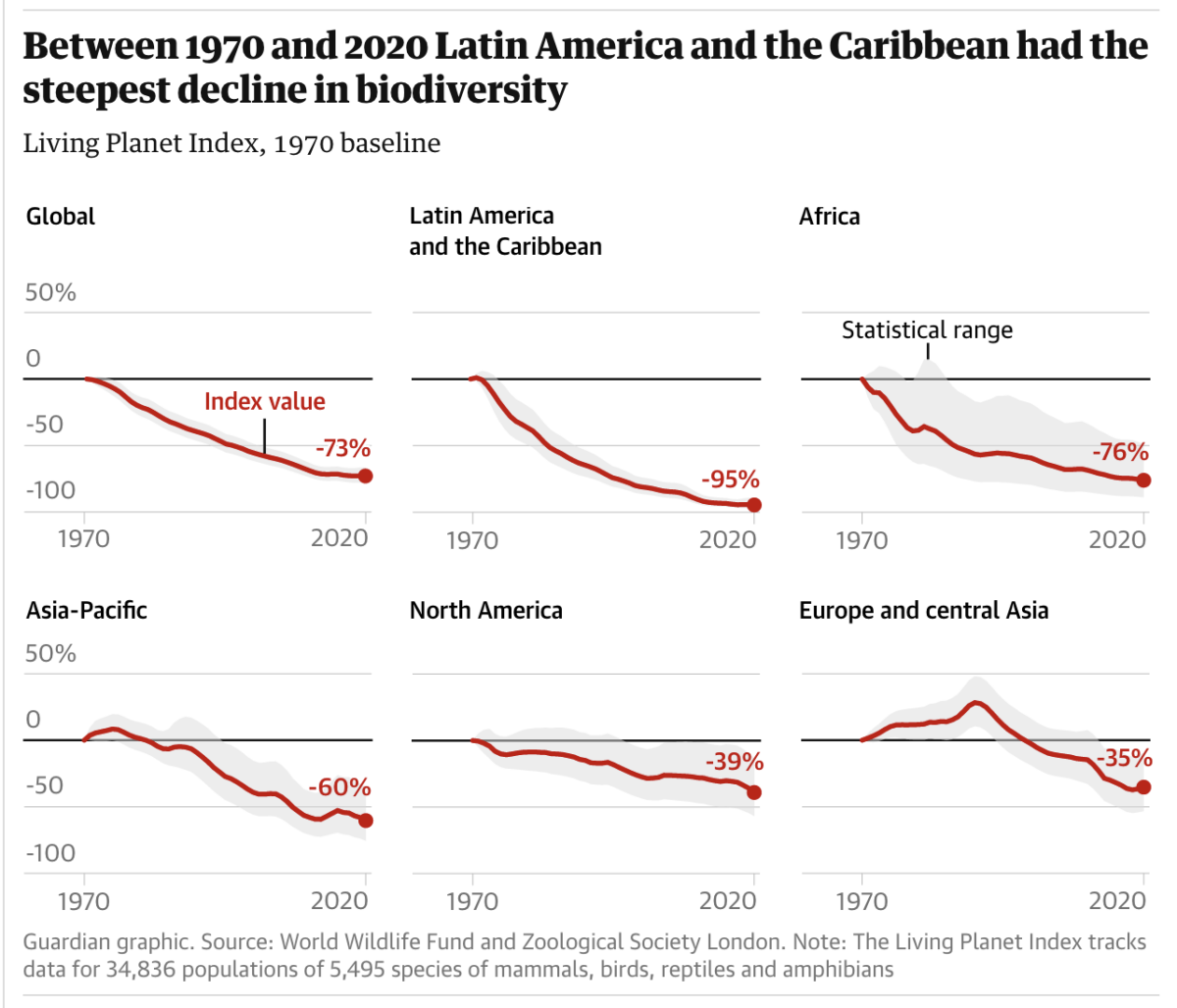
Global wildlife populations have plunged by an average of 73% in 50 years, a new scientific assessment has found, as humans continue to push ecosystems to the brink of collapse.
Latin America and the Caribbean recorded the steepest average declines in recorded wildlife populations, with a 95% fall, according to the WWF and the Zoological Society of London’s (ZSL) biennial Living Planet report. They were followed by Africa with 76%, and Asia and the Pacific at 60%. Europe and North America recorded comparatively lower falls of 35% and 39% respectively since 1970.
Scientists said this was explained by much larger declines in wildlife populations in Europe and North America before 1970 that were now being replicated in other parts of the world. They warned that the loss could quicken in future years as global heating accelerates, triggered by tipping points in the Amazon rainforest, Arctic and marine ecosystems, which could have catastrophic consequences for nature and human society.
Matthew Gould, ZSL’s chief executive, said the report’s message was clear: “We are dangerously close to tipping points for nature loss and climate change. But we know nature can recover, given the opportunity, and that we still have the chance to act.”
The figures, known as the Living Planet Index, are made up of almost 35,000 population trends from 5,495 birds, fish, amphibians and reptiles species around the world, and have become one of the leading indicators of the global state of wildlife populations.
The IUCN’s Red List, which has assessed the health of more than 160,000 plant and animal species, has found that almost a third are at risk of extinction. Of those assessed, 41% of amphibians, 26% of mammals and 34% of conifer trees are at risk of disappearing.
Land-use change was the most important driver of the fall in wildlife populations as agricultural frontiers expanded, often at the expense of ecosystems such as tropical rainforests. Mike Barrett, director of science and conservation at WWF-UK, said countries such as the UK were driving the destruction by continuing to import food and livestock feed grown on previously wild ecosystems.
“The data that we’ve got shows that the loss was driven by a fragmentation of natural habitats. What we are seeing through the figures is an indicator of a more profound change that is going on in our natural ecosystems … they are losing their resilience to external shocks and change. We are now superimposing climate change on these already degraded habitats,” said Barrett.
“I have been involved in writing these reports for 10 years and, in writing this one, it was difficult. I was shocked,” he said.